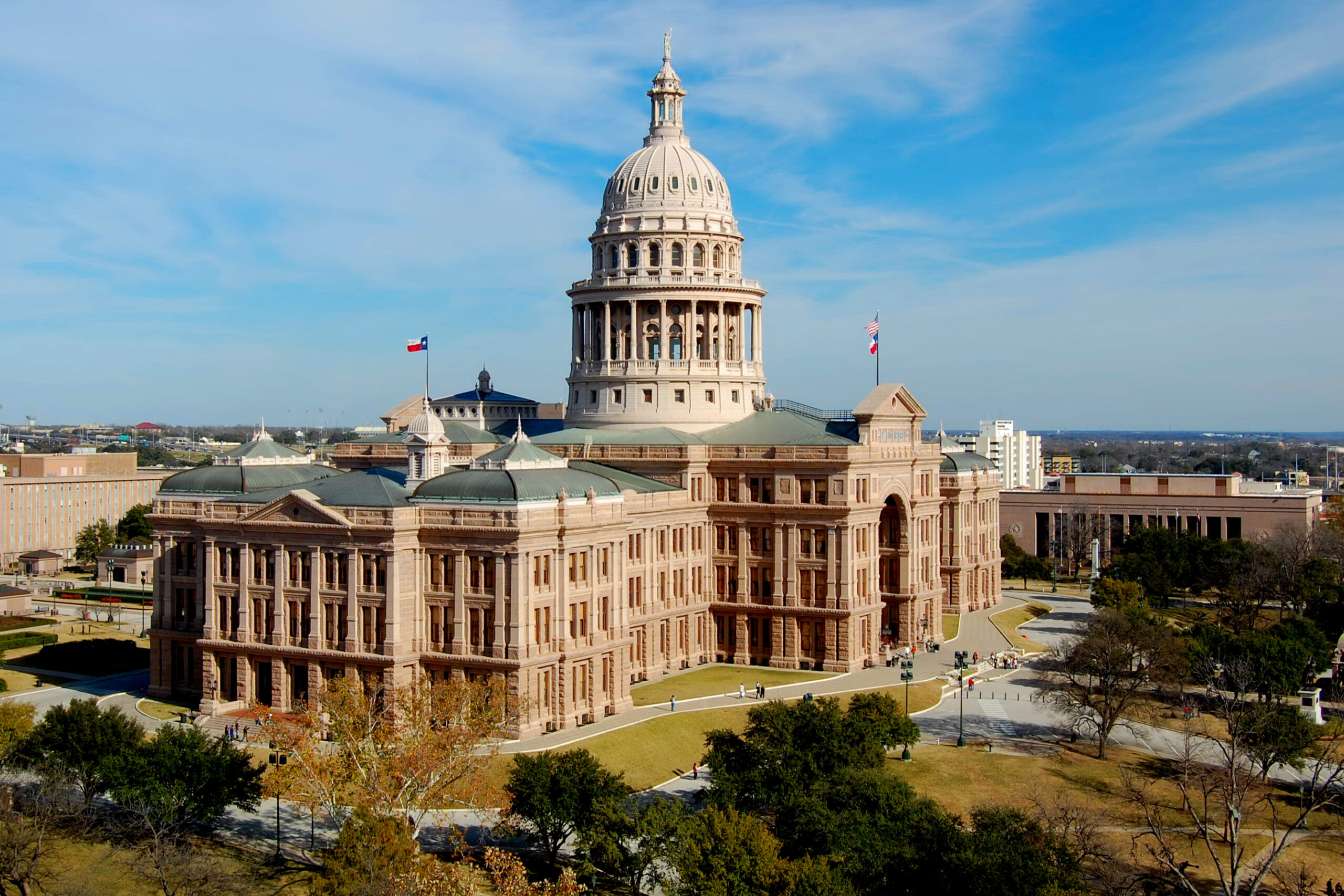Photo: Texas State Capitol. By LoneStarMike – Own work, CC BY 3.0
This article has been republished from the San Francisco Chronicle
While much of the country is rightfully preoccupied with Florida’s efforts to eliminate African American history from schools, a quieter but equally dangerous racist development is happening in Texas and beyond.
Texas’s proposed SB147 will, if enacted, ban citizens from China, Russia, North Korea and Iran from buying property or real estate in Texas; at least 11 other states are considering similar legislation. The ultra-conservative American Legislative Exchange Council is pushing many of these bills as a “model policy,” just as it has aggressively promoted anti-transgender legislation.
These laws will almost certainly have a disproportionate impact on Asian Americans and Pacific Islanders because we are easier to identify — and will bolster the yellow peril view of us as forever foreigners in our own country.
SB147 justifies its necessity on the grounds of national security, a catch-all phrase to override the pillars of American freedom and democracy. It deems these four countries to be enemies of the United States, especially China — propelled by the current hysteria from the diplomatic fallout over an alleged spy balloon.
Whatever the state of official diplomatic relations between countries, these sorts of anti-free market, race-based discriminatory restrictive covenants are anathema to our nation’s values and have a disgraceful place in American history. The proposed Texas land law is eerily similar to racist laws of the past.
On May 3, 1913, California passed the Alien Land Law prohibiting Asian immigrants from purchasing and owning land. In 1920, immigrants not eligible for citizenship were prohibited from entering short-term leases for land, and stock companies and could not acquire agricultural lands. In 1923 American-born children of Asian immigrant parents or corporations controlled by Asian immigrants were not allowed to lease or own land. These laws were directed at Japanese and Chinese immigrants, based on perceived economic threats.
Fifteen states followed California creating similar laws. Oregon’s Constitution stated no “Chinaman” could own property in the state — but “white foreigners” could enjoy the same ownership rights as native citizens. Fortunately, these discriminatory laws were eventually struck down by the Supreme Court in Sei Fuji v. California as a violation of the 14th Amendment’s equal protection clause.
SB147 ignores that history to send the chilling message that questions Asian American loyalty to America — perpetuating the forever foreigner stereotype.
On its face, SB147 exempts U.S. citizens. But it’s not difficult to imagine various scenarios where American citizens will face fallout from the bill.
Consider the following hypothetical: A Korean American family contacts a real estate agent to help buy a home and the agent, not understanding the nuances of the law or unwilling to verify their immigration status or simply not understanding the difference between North and South Korea, simply refuses to work with the family. If the agent didn’t like Asians anyway, SB147 offers a ready-made excuse to discriminate.
If this scenario sounds implausible, many Asian Americans in Texas certainly don’t feel that way.
Frightened Chinese American Texans like Kuo Zhang told the Dallas Morning News said the bill could affect their plans. “My husband and I are expecting a baby and we were planning to buy a house for our extended family.”
A Texas A&M University graduate named Wei Wu described the bills as hateful and discriminatory, and said, “We are here, we pay taxes, we’re here to seek our dreams; we should not be discriminated against.”
Even if you dismiss these fears, our country is based on the rule of law. As former judges, we believe SB147 and its similar bills in other states violate the equal protection and the due process clauses of the 14th Amendment of the Constitution and Title VI of the Civil Rights Act of 1964. They not only offend the basic principles of fairness and equal protection of our Constitution, but also our country’s most basic sense of morality and justice. They are a shameful throwback to the darkest, ugliest, most hateful periods of our past — times that we barely survived and that we had imagined our country had risen above.
The nation just endured a 339 % increase in anti-Asian hate crimes last year. SB147 and similar legislation spreading across the country will target Asian Americans and Pacific Islanders anew. The bills are xenophobic, unconstitutional and should not be passed.
Lillian Sing and Julie Tang are retired San Francisco Superior Court judges and co-chairs of the Comfort Women Justice Coalition.


Comments are closed